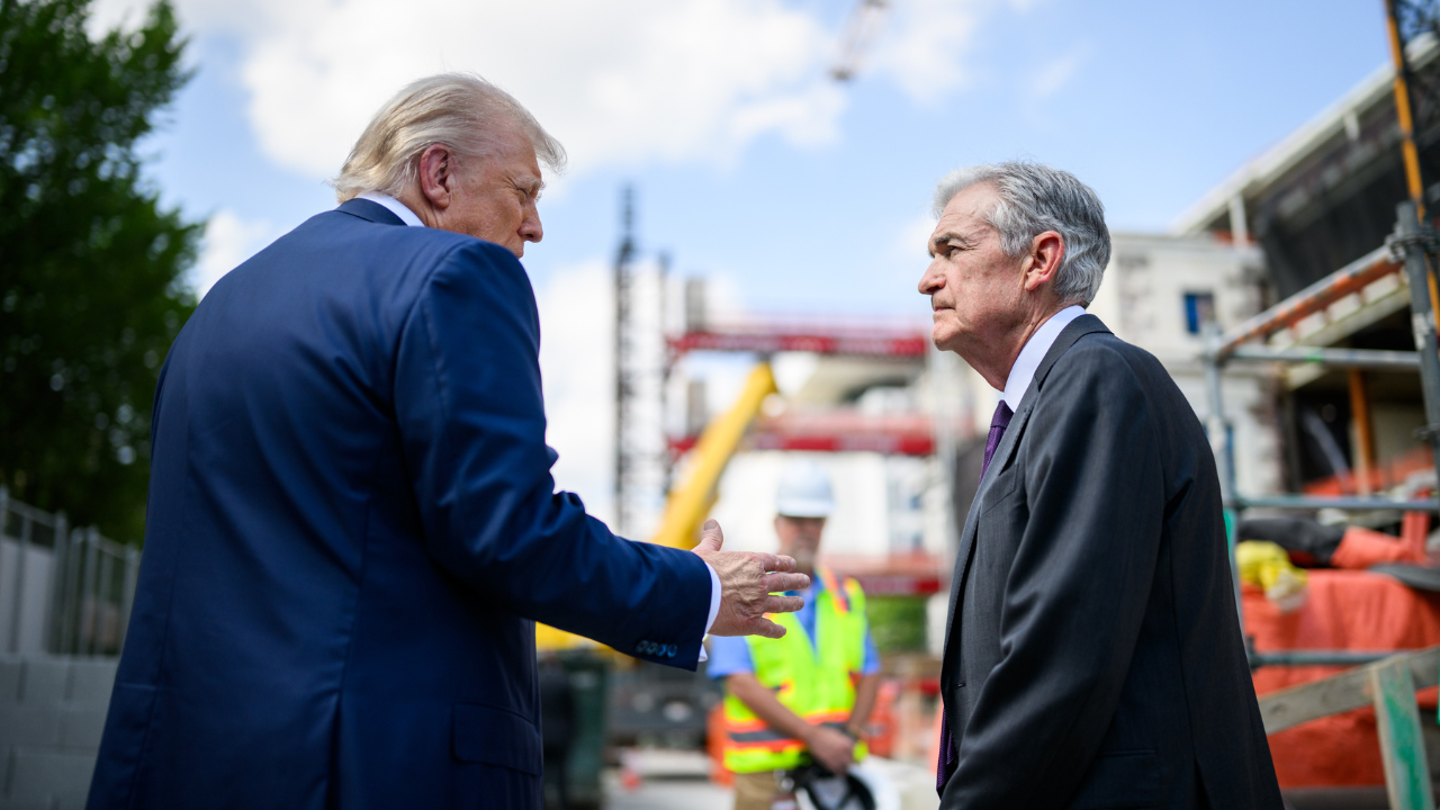A procedural vote needed to advance the GENIUS Act and two other key cryptocurrency bills in the House failed Tuesday after 13 House Republicans unexpectedly joined Democrats in opposition.
This brought the House’s much-anticipated “Crypto Week” to a standstill.
Later Tuesday evening, President Donald Trump announced on Truth Social that he had met with 11 of the 12 Republican holdouts in the Oval Office. Following the discussion, he claimed they agreed to support the procedural vote the next day, potentially getting the GENIUS Act back on track.
“I am in the Oval Office with 11 of the 12 Congressmen/women necessary to pass the GENIUS Act, and, after a short discussion, they have all agreed to vote tomorrow morning in favor of the Rule,” Trump wrote on Truth Social.
The reason for Republicans opposing the bill comes from their frustration with the bill’s omission of language banning a central bank digital currency (CBDC). Some GOP members wanted the three crypto-related bills to be packaged together, rather than voted on separately—a move that would delay passage and send the legislation back to the Senate. There was distrust in the Senate to act quickly on the other two bills if passed individually by the House.
The GENIUS Act would create a regulatory framework for dollar-backed stablecoins. The bill has already passed the Senate (68–30) and is seen as the most likely crypto bill to become law. Passage is a top priority for Trump, who urged a clean vote without amendments or delays.
“Speaker of the House Mike Johnson was at the meeting via telephone and looks forward to taking the Vote as early as possible… I want to thank the Congressmen/women for their quick and positive response. MAKE AMERICA GREAT AGAIN!” Trump wrote.
Trump’s interest in crypto goes beyond the GENIUS Act. Among other bills under consideration are the Anti-CBDC Surveillance State Act, which bars the Federal Reserve from creating a central bank digital currency, and the Digital Asset Market Clarity Act, which establishes clearer rules over which federal agencies regulate which parts of the crypto market.
The original reaction to the standstill led to House Speaker Mike Johnson canceling all votes for the rest of Tuesday. Crypto markets dipped, with stablecoin-related stocks like Circle Internet falling 5% after the failed vote.
Industry leaders, including those from Coinbase, voiced frustration but urged persistence.
As Faryar Shirzad, chief policy officer of Coinbase, the nation’s largest cryptocurrency exchange, said in a statement:
“[For] every few steps forward there’s inevitably a step back… It’s in these moments we’ll see who is trying to get pro-crypto legislation done and who is not.”
Josh Vlasto, spokesperson for Fairshake, added:
“The voters last year were clear—Congress needs to stop playing politics with crypto and finally pass responsible regulation… We are building an aggressive, targeted strategy for next year to ensure that pro-crypto voices are heard in key races across the country.”
Trump’s personal investments in crypto—including through his family’s involvement in World Liberty Financial—have drawn attention, especially as the stablecoin bill exempts the president and their family from its conflict-of-interest rules, unlike members of Congress.
The procedural vote is expected to be revisited as early as Wednesday. If the House adopts the rule, debate on the GENIUS Act and related crypto bills will resume. Crypto advocates are watching closely, with some already prepping $140 million in super PAC spending for the 2026 midterms to support pro-crypto candidates.
Axios, the Hill, and the Associated Press contributed to this report.










The latest news in your social feeds
Subscribe to our social media platforms to stay tuned